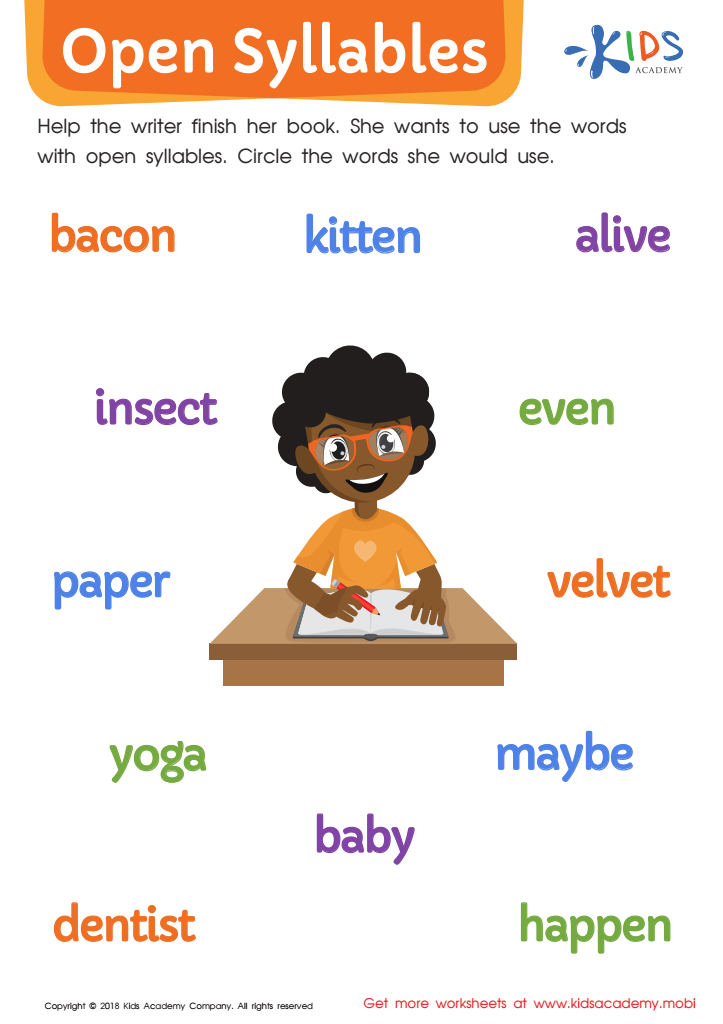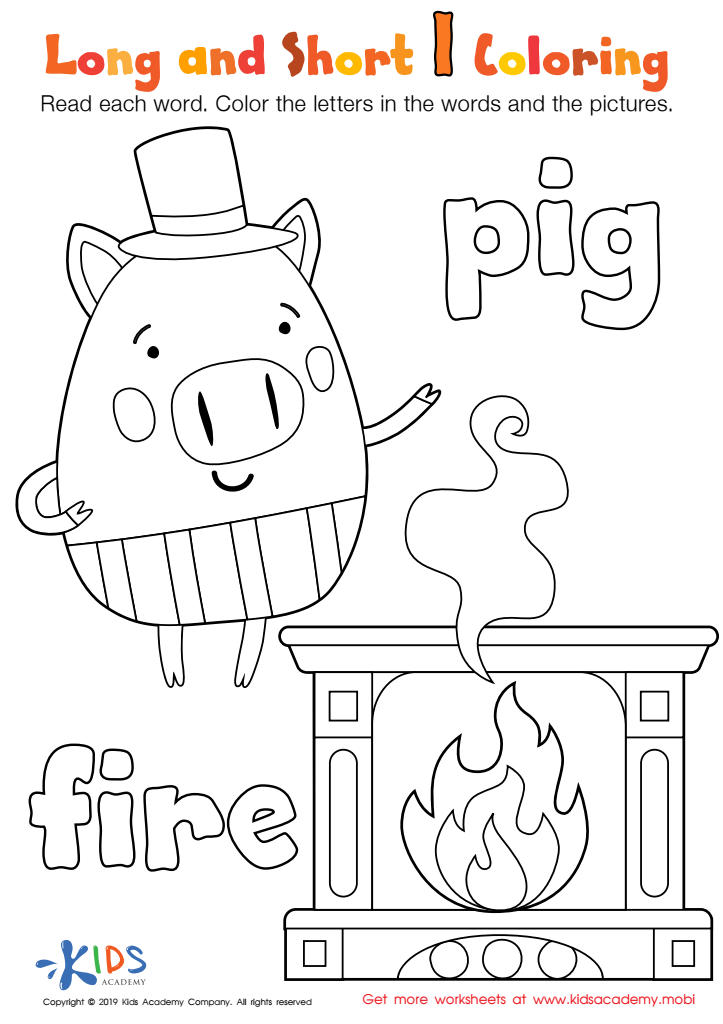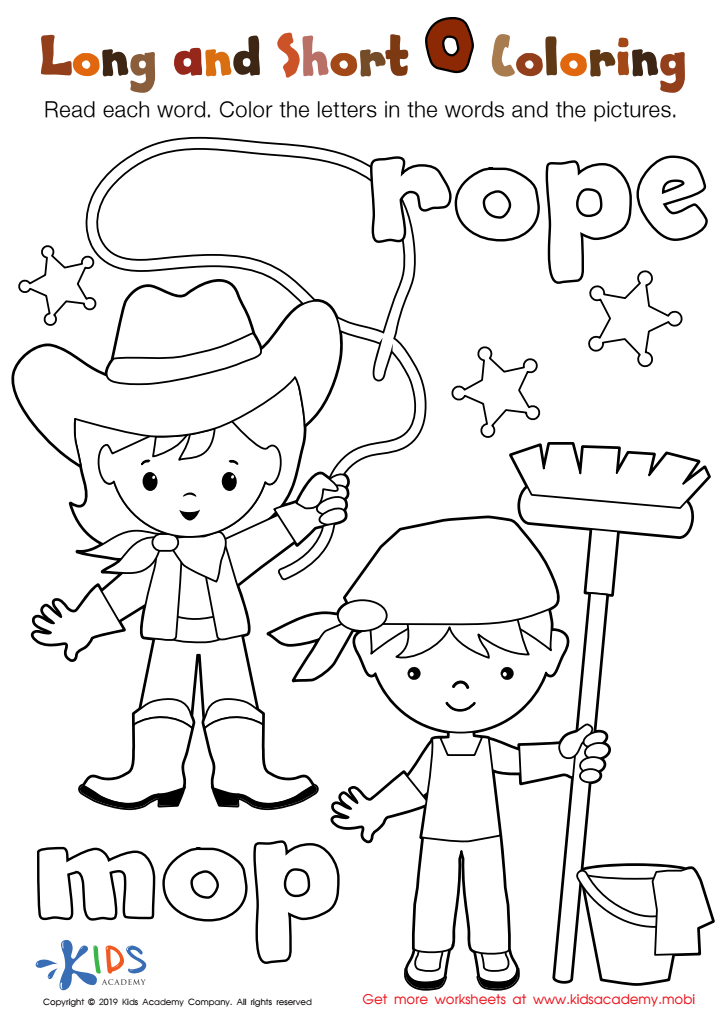Improving reading skills Alphabet Worksheets for 9-Year-Olds
3 filtered results
-
From - To
Boost your child's reading abilities with our specialized Alphabet Worksheets for 9-year-olds. Designed to make learning fun and effective, each worksheet focuses on enhancing phonics, vocabulary, and comprehension skills. Perfect for third graders, these engaging activities combine colored illustrations and interactive exercises that hold children's attention. As they progress, kids build a strong foundation in letter recognition and phoneme blending, essential for becoming fluent readers. Ideal for use at home or in the classroom, our worksheets provide consistent practice that accelerates literacy improvement. Start your child’s journey to reading excellence today with our expertly crafted Alphabet Worksheets.


Open Syllables Worksheet


Long and Short I Worksheet


Long and Short O Worksheet
Improving reading skills, particularly grasping the alphabet, is crucial for 9-year-olds, as it serves as the foundation for future academic success. At this age, children transition from learning to read to reading to learn, making fluency in reading essential for understanding and retaining information across all subjects. A well-established understanding of the alphabet and phonics enables children to decode words effortlessly, boosting their confidence and fostering a love for reading.
Moreover, strong reading skills are linked to improved cognitive development. Reading enhances vocabulary, spelling, and grammar, which in turn positively affects writing abilities. Children who read proficiently are more likely to excel in standardized tests and overall academics, opening up broader opportunities for future education and career paths.
Beyond academics, reading fosters empathy and cultural awareness by exposing children to diverse perspectives and ideas. It aids in developing critical thinking skills, as young readers learn to analyze texts and comprehend complex concepts.
For parents and teachers, investing time and resources to enhance a child's reading abilities can result in lifelong benefits. Engaging in reading activities, providing a rich collection of books, and encouraging consistent practice can make a significant difference. By prioritizing reading skills, caretakers effectively support children’s intellectual and emotional growth, setting a strong foundation for lifelong learning.
 Assign to My Students
Assign to My Students



















